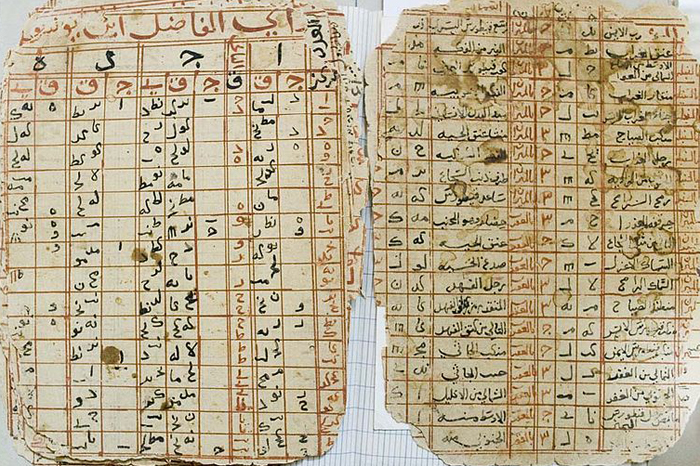Debunking the myth that orality trumps literacy in Africa
12 October 2015 | Story by Newsroom
Africa is often said to be the oral continent. This is a persistent stereotype which maintains that people in rural sub-Saharan Africa mainly operate and interact using the spoken word.
The stereotype further sees writing in Africa as having been brought by Christian missionaries starting in the 19th century. This was on the cusp of the colonisation of large parts of the continent.
A strain of research on oral literature and performance was developed mainly by Harvard University scholars Milman Parry and Albert Lord's studies of epic poetry. Walter Ong's Orality and Literacy: The Technologising of the Word separated out the oral and the written. It cemented the perception of a hierarchy that placed the ability to read and write as more developed than transmitting knowledge orally.
Together with Jack Goody's earlier work The Domestication of the Savage Mind (1968), Ong's book cemented into a broadly held assumption the implication that orality was dying in Africa. It implied that orality would over time be replaced by literacy as the primary mode of communication. Attempts to debunk these notions continue to this day.
Four ways Africa is not the oral continent
The opposition between orality and literacy has been shown to be a false one. Four main points show the inadequacy of the opposition. First, ideas of literacy have only privileged reading and writing in Roman script. They have thus defined literacy narrowly, leaving out many other kinds of literacy. But visual literacy, for example, has progressively come to be taken quite seriously.
In southern Africa, studies of rock art such as those conducted by archaeologist Geoff Blundell at the Rock Art Research Institute at the University of the Witwatersrand in Johannesburg, South Africa, have uncovered evidence of sophisticated visual literacies that go back thousands of years.
What is more, to interpret rock art, archaeologists rely heavily on oral narratives, especially those in the Bleek and Lloyd Collection housed at the University of Cape Town. The use of these narratives has done much to overturn the notion of orality and literacy being separate domains of knowledge production and transmission.
Second, research on manuscripts in Arabic and other scripts the provenance of which has been traced to the 13th century shows the widespread development and use of writing in different parts of Africa. These were linked through sophisticated networks to the Middle East, China and other places. The iconic manuscripts in the town of Timbuktu in Mali are the jewel in the crown of the continent.
Their profile was significantly raised when the South African government funded the construction of a new library in Timbuktu to house the manuscripts that are inheritances residing in many family homes all over northern Mali. The Tombouctou Manuscripts Project is conducting ongoing research on scripts and calligraphy in west, east and southern Africa.
Third, the oral production and transmission of knowledge is a feature of every culture in the world. People have always thought and recorded their thoughts on external surfaces. Things that have been written down may then be talked about.
The processes are not linear, meaning there is constant traffic between the spoken word and written signs in any given culture in any part of the world. Orality exists in an ongoing relationship with literacy in ways that are mutually constitutive and reinforcing.
Finally, orality is not dying in Africa or anywhere else in the world. In Radio in Africa edited by Dina Ligaga, Dumisa Moyo and Liz Gunner, several authors demonstrate how in different parts of Africa radio listenership has grown in defiance of all predictions that audio-visual media like television would lead to the decline of radio. New commercial and community radio stations are being established from Mali to Kenya, and from Ghana to Zimbabwe.
Vibrancy
What is more, research on the spoken word and hip hop as well as on older forms such as izibongo or lithoko praise poetry shows how these artistic forms are thriving on stages around the continent. They are also being published in books on websites and on multimedia platforms such as YouTube.
The recently published Goethe-Institut book, The Spoken Word Project: Stories Travelling Through Africa, demonstrates the growing vibrancy of performance poetry in cities around the continent. Poets work in a variety of ways – ranging from those who carefully compose their work to present orally on stage to those who compose on their feet in performance.
Many poets reject the dichotomy between the oral and the written. At a recent workshop leading poets including Keorapetse Kgositsile, Lesego Rampolokeng and Iain 'Ewok' Robinson insisted that the written word and the spoken word, sound, music, gesture and movement are all resources they work with continuously.
Oral and written continue to live within, inside and alongside one another in ever more ways.
Mbongiseni Buthelezi, Senior Researcher at the Archive & Public Culture, University of Cape Town.
|
This article first appeared in The Conversation, a collaboration between editors and academics to provide informed news analysis and commentary. Its content is free to read and republish under Creative Commons; media who would like to republish this article should do so directly from its appearance on The Conversation, using the button in the right-hand column of the webpage. UCT academics who would like to write for The Conversation should register with them; you are also welcome to find out more from carolyn.newton@uct.ac.za. |
This article is featured in the latest Research at UCT newsletter. Be the first to get the latest research news by subscribing.
![]()
 This work is licensed under a Creative Commons Attribution-NoDerivatives 4.0 International License.
This work is licensed under a Creative Commons Attribution-NoDerivatives 4.0 International License.
Please view the republishing articles page for more information.










